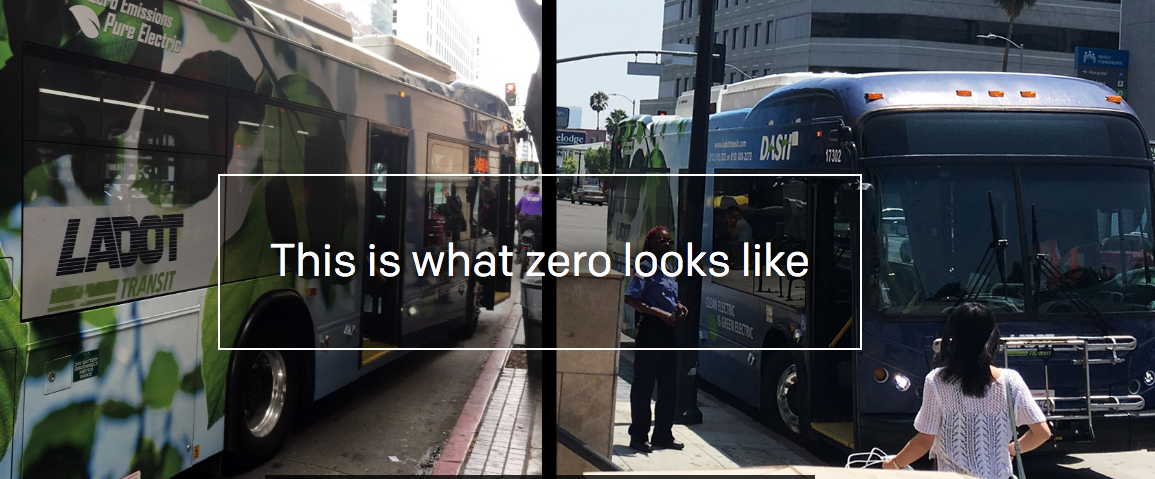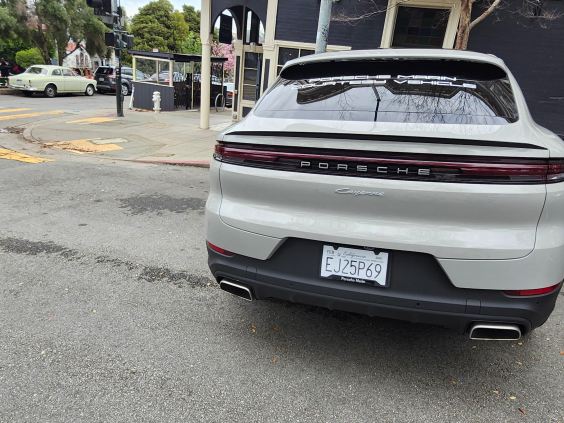Note: GJEL Accident Attorneys regularly sponsors coverage on Streetsblog San Francisco and Streetsblog California. Unless noted in the story, GJEL Accident Attorneys is not consulted for the content or editorial direction of the sponsored content.
A short panel discussion tomorrow in Sacramento will outline actions the state of California is undertaking to reach zero emissions in all sectors. Panelists will talk about the quickening pace of change, why it's happening here, what are the political hurdles and policy priorities, and what changes need to be made that are not happening.
The panel is the second in a series sponsored by Earthjustice as part of its Right to Zero campaign to fight for a clean energy future. A similar event took place in Los Angeles last November, with a focus on local issues; future discussions are planned for the Bay Area and the Central Valley.
“When we started this campaign, we thought the hard part would be convincing folks that, one, we need to move to zero emissions and, two, that we could even contemplate doing it,” said Paul Cort, an attorney for Earthjustice who will moderate the panel. But it turns out that Californians are already beyond those questions. “Things have evolved so rapidly that that's not that big a part of the conversation,” he said. Instead, the discussion can focus on “what we need to do, how we get there, and what roadblocks we face.”
One of the panelists on Tuesday will be Assemblymember Laura Friedman (D-Glendale), who will talk about bills currently under discussion in the state legislature. Those include S.B. 100, from Senator Kevin de León (D-Los Angeles), which would committee the state to a goal of 100 percent zero carbon energy by the year 2045, and A.B. 1745, from Assemblymember Phil Ting (D-San Francisco), which would set a target to stop selling any fossil fuel vehicles in California by 2040 (all new cars).
The panelists will also discuss agency actions, including zero emission bus and truck rules expected soon from the Air Resources Board, and investments being considered by major utilities in electric charging stations for the medium and heavy duty transportation sector.
Another topic will be the looming showdown over natural gas, which the industry has been pushing as a “clean alternative” to diesel but experience is showing is anything but. As the Public Utilities Commission considers the future of energy infrastructure, problems with pipelines—the experience in Puerto Rico after the hurricane, leaks at Aliso Canyon, ruptures on the California coast—are reshaping that conversation. In building a resilient system, electricity has major advantages over fossil fuels in terms of storage, distributed generation, and local generation from rooftop solar panels.
But the natural gas industry, facing an existential threat, has told the Public Utilities Commission that investments in electricity will put them out of business.
The panel will also include Ericka Flores of the Center for Community Action and Environmental Justice, a group working in the Inland Empire, where bad air quality is a huge issue. The area is seeing a huge threat to its quality of life from the expansion of the freight industry there, which includes proposals for new warehouses that would add something like 36,000 truck trips per day through Moreno Valley.
The community “feels acutely the impacts of decisions to maintain the fossil fuel system,” said Cort, “and they have been some of the loudest voices for zero emissions.”
The natural gas industry has painted a portrait of these communities as “just wanting cleaner air,” which they say could be achieved by replacing diesel with natural gas. “But when you talk to these communities,” said Cort, “You find they're more technically savvy as well as technologically optimistic. They're tired of interim solutions; they want zero emissions,” said Cort, not just “cleaner” air.
Zero emissions projects are thought of as tied to climate or environmental groups, said Cort, “but some of the loudest voices for zero emissions are in communities that feel the immediate health impacts from bad air.”
It's a lot to talk about in a single hour. “The goal is not so much to get into depth on these policy issues,” said Cort, “as to reinforce a shared vision in a clean future. That is: this is what's happening, this is our shared goal, and here are the things that are coming along that people need to be aware of.”






